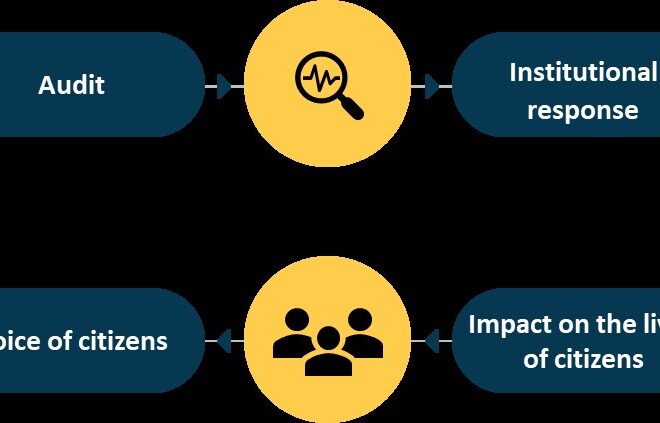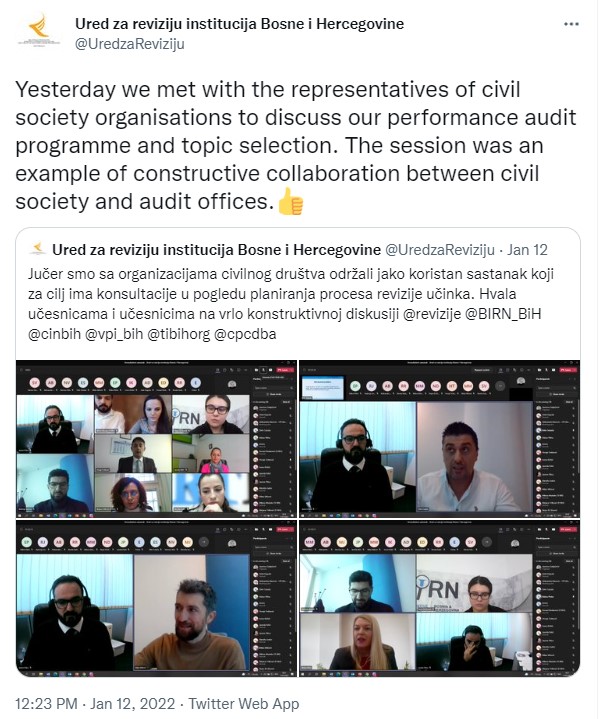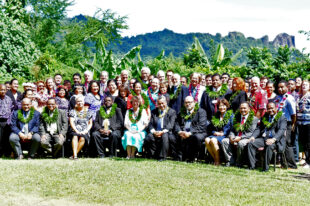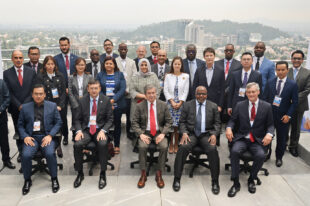SAI Bosnia and Herzegovina’s First Communication Strategy Targets Improved Civil Society Engagement

Author: Jasmina Galijasevic, Head of International Cooperation Unit, the Audit Office of the Institutions of Bosnia and Herzegovina
The Audit Office of the Institutions of Bosnia and Herzegovina (SAI Bosnia and Herzegovina) developed its first communication strategy for a four-year period (2022-2025). The communication strategy aims to increase the impact of SAI Bosnia and Herzegovina, and enables delivery of proper value and benefits for the society through enhanced stakeholder engagement.
SAI Bosnia and Herzegovina identified the development of effective relationships between SAIs and parliaments, and effective engagement with other stakeholders to increase impact, including civil society, as an area for further support and guidance. The Support for Improvement in Governance and Management (SIGMA)[1] initiative has supported stakeholder engagement since 2018. The initiative aims to provide support to SAI Bosnia and Herzegovina to develop effective stakeholder engagement within the context of INTOSAI-P 12 on the value and benefits of Supreme Audit Institutions (SAIs). SIGMA also assists in increasing external stakeholders’ awareness and understanding of the role and work of the SAIs.
Prior to 2018, SAI Bosnia and Herzegovina’s communication approach was a one-way process— the main repository of information was the SAI’s website where final audit reports, press releases and other materials were published, without any mechanisms for feedback or consultation by external stakeholders.
Recognizing that one-way communication fails to build relationships and does little to increase understanding and impact of the SAI’s work, SAI Bosnia and Herzegovina made efforts to promote feedback mechanisms and build a two-way communication process between the SAI and its stakeholders that goes beyond mere reporting.
After initial stakeholder and communications analysis, SAI Bosnia and Herzegovina and SIGMA implemented several key activities aimed to identify stakeholder expectations and knowledge on SAI Bosnia and Herzegovina’s role and responsibilities. The analysis activities included surveys and focus groups specifically designed for the media, civil society organizations (CSOs), auditees and SAI staff. SAI Bosnia and Herzegovina and SIGMA also held a workshop where SAI Hungary and SAI Latvia representatives presented their good practices on engaging with stakeholders.
As a result of the outcomes of the above activities, SAI Bosnia and Herzegovina has been gradually introducing new communication tools and methods in order to overcome communication challenges previously identified.
One of the key reformative approaches that had been introduced are consultative meetings with CSOs coming from sectors of public finances, corruption, security, public procurement, etc., that is, the areas the SAI covers with its mandate. The meetings allow CSOs to provide input to SAI Bosnia and Herzegovina’s annual performance audit planning process. The first of these meetings took place in 2018, and has since become an annual practice. CSO representatives reacted very positively to this new communication mechanism, and utilize the meetings to actively discuss relevant public sector issues that could potentially be addressed by performance auditing procedures. Apart from discussing potential audit topics, these meetings provide an opportunity where SAI Bosnia and Herzegovina’s performance auditors share key rationales behind performance audit topic selection for the upcoming annual audit plan with CSOs.

Source: SAI Bosnia and Herzegovina
One such performance audit, conducted on a topic proposed by a CSO, resulted in an ongoing parliamentary initiative to reduce certain administrative fees payable by citizens and businesses, which was directly linked to our audit findings. SAI Bosnia and Herzegovina’s strategic objective to engage CSOs into the audit planning process has resulted in an impactful audit.
[1] SIGMA (Support for Improvement in Governance and Management) is a joint initiative of the OECD and the EU, principally financed by the EU.





